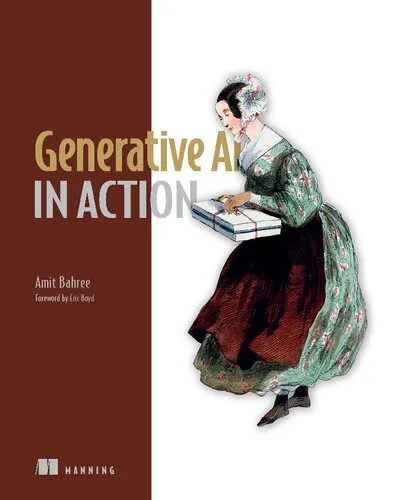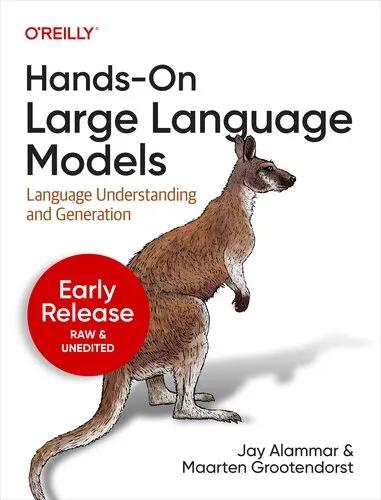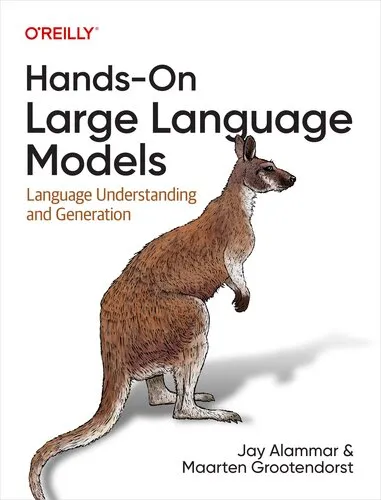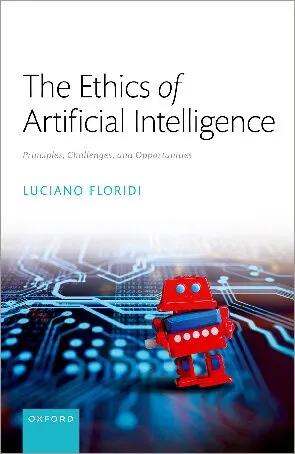Fairness and Machine Learning: Limitations and Opportunities (Adaptive Computation and Machine Learning series)
4.5
بر اساس نظر کاربران

شما میتونید سوالاتتون در باره کتاب رو از هوش مصنوعیش بعد از ورود بپرسید
هر دانلود یا پرسش از هوش مصنوعی 2 امتیاز لازم دارد، برای بدست آوردن امتیاز رایگان، به صفحه ی راهنمای امتیازات سر بزنید و یک سری کار ارزشمند انجام بدینکتاب های مرتبط:
معرفی کتاب "Fairness and Machine Learning: Limitations and Opportunities"
کتاب "Fairness and Machine Learning: Limitations and Opportunities" نوشته سولون باروکاس، مورتیز هاردت و آروید نارایانن، یکی از جامعترین منابع در زمینه عدالت و یادگیری ماشین است. این کتاب به بررسی چالشها و فرصتهایی که در ارزیابی و تضمین عدالت در الگوریتمهای یادگیری ماشین وجود دارد، میپردازد. با توجه به تاثیر روزافزون تکنولوژیهای یادگیری ماشین بر زندگی روزمره انسانها، تحقیق در مورد عدالت و جلوگیری از بروز تبعیضهای ناخواسته در این حوزه بیش از پیش اهمیت پیدا کرده است.
خلاصهای جامع از کتاب
کتاب حاضر به دنبال پاسخگویی به این سوال بنیادین است که چگونه میتوانیم الگوریتمهایی ایجاد کنیم که نه تنها دقیق و کارآمد باشند، بلکه از نظر اخلاقی نیز منصفانه عمل کنند. نویسندگان ابتدا به تبیین ابعاد مختلف عدالت در زمینههای مختلف زندگی اجتماعی و فردی میپردازند. سپس موارد خاصی مانند استخدام یا دسترسی به وامهای بانکی را که ممکن است تحت تاثیر الگوریتمهای یادگیری ماشین قرار گیرند، مورد بحث قرار میدهند.
این اثر در پنج بخش تنظیم شده است که در هر بخش به بررسی جنبههای مختلف عدالت در یادگیری ماشین، از جمله تعاریف، معیارها، و روشهای ارزیابی عدالت پرداخته میشود. یکی از مفاهیم کلیدی در این کتاب، تشخیص محدودیتهای موجود در الگوریتمهاست و اینکه چگونه میتوان این محدودیتها را شناسایی و با آنها مواجه شد.
نکات کلیدی کتاب
- تعریف دقیق انواع عدالت از جمله عدالت توزیعی و رویهای و چگونگی اعمال آنها در یادگیری ماشین.
- بررسی تکنیکهای مختلف برای ارزیابی و بهبود عدالت در مدلهای یادگیری ماشین.
- روشهای پیشنهادی برای طراحی الگوریتمهایی که با کمترین تبعیض عمل میکنند.
- مطالعه موارد واقعی که در آنها عدم عدالت الگوریتمی به نتایج ناعادلانهای منجر شده است.
جملات معروف از کتاب
در عصر دیجیتال، عدالت نه تنها یک نیاز اخلاقی بلکه ضرورتی عملی برای فناوری است که به طور گسترده بر افراد و جوامع تاثیر میگذارد.
تشخیص پیشفرضها و محدودیتهای ذاتی در الگوریتمها اولین گام به سمت ایجاد سیستمهای عادلانهتر است.
چرا این کتاب اهمیت دارد؟
این کتاب به عنوان یکی از منابع کلیدی در فهم چگونگی تعامل بین تکنولوژی و جامعه، اهمیت خود را نشان داده است. با گسترش کاربردهای یادگیری ماشین در زمینههای مختلف، مانند عدالت کیفری، بازار کار، و خدمات مالی، وجود دیدگاهی جامع و علمی در خصوص عدالت الگوریتمیک ضروری است.
"Fairness and Machine Learning" به پژوهشگران، دانشجویان و حتی سیاستگذاران کمک میکند که چشماندازی روشن و دقیق از این چالشهای پیچیده پیدا کنند و به طراحی راهحلهای موثرتر برای مقابله با تبعیضهای الگوریتمی بپردازند.
Fairness and Machine Learning: Limitations and Opportunities delves into the complex and often misunderstood interplay between algorithmic systems and societal values. As our world increasingly relies on machine learning algorithms for decision-making processes in areas like hiring, criminal justice, and healthcare, understanding the nuances of fairness becomes imperative. This book tackles these challenges head-on, providing readers with a comprehensive overview of the current landscape, limitations, and potential opportunities for improving fairness in machine learning.
Summary of the Book
The book begins by laying a foundational understanding of what fairness means in the context of machine learning. It explores different definitions and approaches to fairness, such as demographic parity and equal opportunity, and examines their implications in real-world applications. The authors, Solon Barocas, Moritz Hardt, and Arvind Narayanan, emphasize the importance of a multidisciplinary approach that combines technical, legal, and ethical perspectives.
Through detailed case studies and analysis, the book highlights instances where algorithms have failed to be fair and discusses the adverse impacts that these failures can have on individuals and groups. It critiques the current methodologies used in designing fair algorithms and points out the inherent trade-offs that often arise, such as the tension between fairness and accuracy.
The latter sections of the book shift towards the future, proposing potential avenues for developing more fair and just machine learning systems. It underscores the role of transparency, accountability, and stakeholder engagement in mitigating the risks of algorithmic bias. The authors argue for a cautious yet optimistic approach to the integration of algorithmic systems in socially sensitive domains.
Key Takeaways
- Understanding different definitions of fairness is crucial for developing ethically aligned AI systems.
- Fairness in machine learning often involves trade-offs that cannot be entirely eliminated, only managed.
- The integration of ethical and legal frameworks alongside technical advancements is necessary to tackle algorithmic bias effectively.
- Stakeholder involvement and transparency in the design of AI systems can enhance their fairness.
Famous Quotes from the Book
"The quest for fairness in machine learning is an ongoing conversation that must involve voices from all sectors of society."
"Fairness cannot be distilled into a singular definition or metric; it is a multifaceted concept influenced by context and application."
Why This Book Matters
The book 'Fairness and Machine Learning: Limitations and Opportunities' is instrumental in advancing the dialogue on the ethical implications of artificial intelligence and machine learning. In a world where algorithms influence numerous aspects of daily life, understanding and addressing concerns related to fairness is more urgent than ever.
This book offers a pragmatic approach to fairness, blending technical precision with ethical sensibility. It equips policymakers, researchers, and practitioners with the necessary tools and insights to develop more equitable algorithms. By acknowledging both the limitations and opportunities presented by machine learning, the authors provide a balanced framework that encourages responsible and inclusive technology development.
دانلود رایگان مستقیم
شما میتونید سوالاتتون در باره کتاب رو از هوش مصنوعیش بعد از ورود بپرسید
دسترسی به کتابها از طریق پلتفرمهای قانونی و کتابخانههای عمومی نه تنها از حقوق نویسندگان و ناشران حمایت میکند، بلکه به پایداری فرهنگ کتابخوانی نیز کمک میرساند. پیش از دانلود، لحظهای به بررسی این گزینهها فکر کنید.
این کتاب رو در پلتفرم های دیگه ببینید
WorldCat به شما کمک میکنه تا کتاب ها رو در کتابخانه های سراسر دنیا پیدا کنید
امتیازها، نظرات تخصصی و صحبت ها درباره کتاب را در Goodreads ببینید
کتابهای کمیاب یا دست دوم را در AbeBooks پیدا کنید و بخرید
1359
بازدید4.5
امتیاز0
نظر98%
رضایتنظرات:
4.5
بر اساس 0 نظر کاربران
Questions & Answers
Ask questions about this book or help others by answering
No questions yet. Be the first to ask!
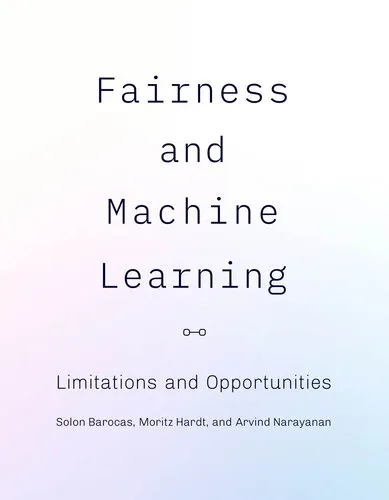

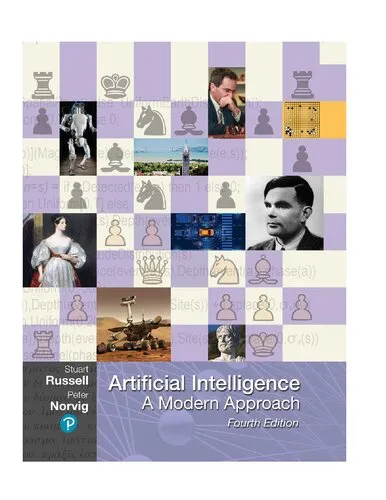
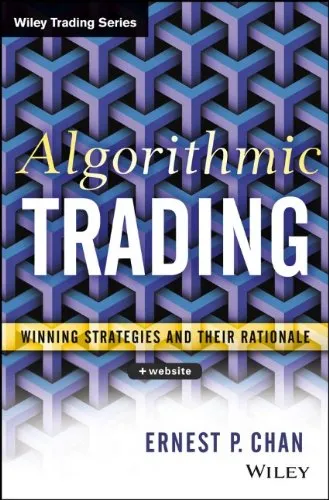
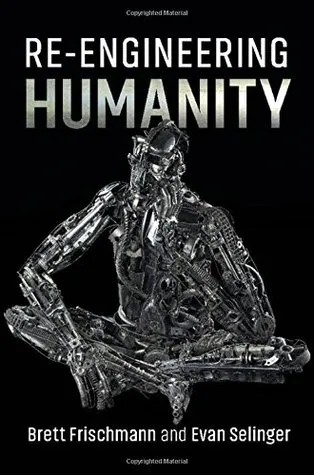

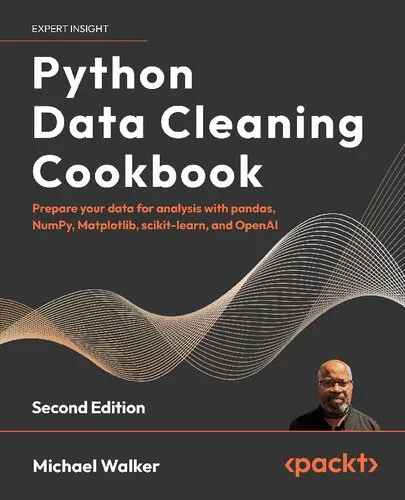
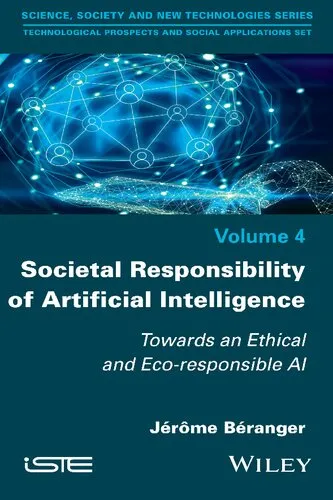
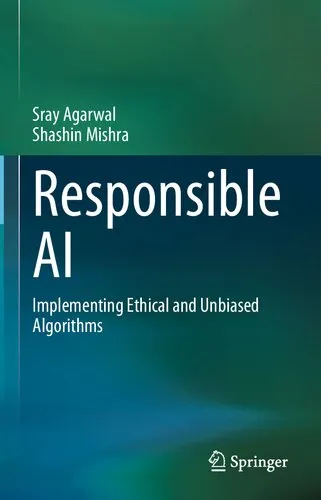
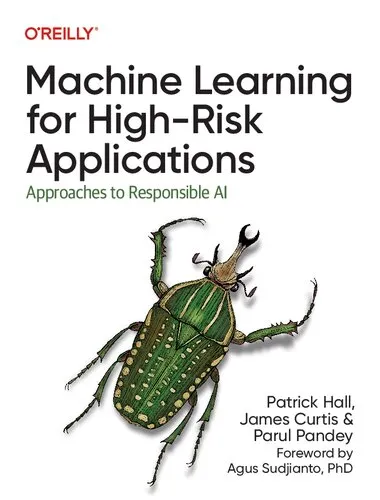
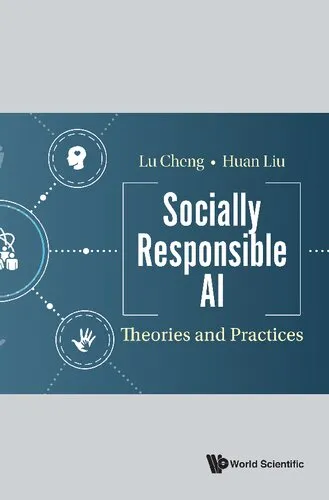
![Responsible AI in the Enterprise: Practical AI Risk Management for Explainable, Auditable, and Safe Models [Team-IRA]](https://s3.refhub.ir/images/thumb/Responsible_AI_in_the_Enterprise__Practical_A_8189.webp)
